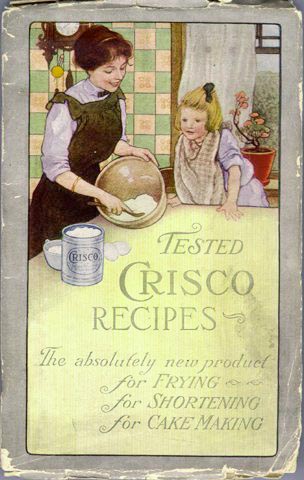Week 11: The dirty details about bad fats – 52 Weeks of Wellness
As we discussed in the past two weeks as part of the 52 Weeks of Wellness program, not all fats are bad. Actually, we cannot live without good fats but the mainstream push for improved health has often left all fats lumped in one giant category and are perceived as bad.
Getting the real facts where fats are concerned is becoming more and more confusing as food manufacturers muddy up the information in an effort to convince you that their processed foods are not bad for you. This week we will clear things up regarding bad fats.
The science behind bad fats:
Trans fat is the common name for unsaturated fat with trans-isomer (E-isomer) fatty acid(s). Because the term refers to the configuration of a double carbon-carbon bond, trans fats are sometimes monounsaturated or polyunsaturated, but never saturated. Trans fats are rare in living nature, but can occur in food production processes.
Bad fats are basically referred to as Trans fats. Trans fats increase bad cholesterol levels (LDL) and decrease good cholesterol levels (HDL) because they are often hydrogenated. Basically hydrogenation adds hydrogen atoms to unsaturated fats where they don’t exist. This adding of hydrogen results in the elimination of the fats double bonds and makes them into partially or completely saturated fats. Most trans fats are NOT naturally occurring.
Trans fats from partially hydrogenated oils are more harmful than naturally occurring oils.
Problem is in the processing:
 Basically, the thing that turns good fats to bad fats is essentially extraction or processing methods. Modern extraction methods for most commercial oils, salad dressings, etc. involve:
Basically, the thing that turns good fats to bad fats is essentially extraction or processing methods. Modern extraction methods for most commercial oils, salad dressings, etc. involve:
- Crushing the seeds and heating them to extremely high temperatures.
- Squeezing out the oil under pressure which generates more heat. Oils go rancid very quickly when exposed to heat; therefore the method of extraction itself has made them rancid.
- Exposing the oil to light and oxygen.
- Treating with solvents to extract remaining oil. The natural preservative, Vitamin E is neutralized or destroyed by this process.
- Often adding BHT and BHA, two toxic substances, as a preservative resulting in rancid, toxic, extracted oils, and even further processing.
Week 11 action step:
To better understand the concern with conventional oils watch the DVD documentary called InGREEDients available at your local library and return here to discuss what you learned from the movie.
Also, how has incorporating essential fatty acid containing foods been going? Do you have a favorite yet? You can refer to this post to read about the good EFA’s if you need a refresher. Tell us your experiences in the comments below to be entered to win our monthly giveaway.
P.S. The giveaway this month is sponsored by Flex151. They have generously offered a Paradise Organics gift certificate for our monthly winner. Also, for extra giveaway entries you can always share the 52 Weeks of Wellness program posts on Facebook, Twitter, Etc. and come back here telling us how/ where you shared so your extra entry can be counted.
Share Wellness With Others:
- Tweet this info by clicking this link->“Understanding what makes some fats bad is key. Do you have the whole story? http://wp.me/p1drJP-GS”
—————————————————————————————————
If you are just now joining us start with week one below. All you need to do each week is:
- Read my my information and tips for the week, then take a week to implement the change.
- Come back to the weeks post page and share your progress with us in the comments section and repeat the process with the next week’s post.
- Rinse and repeat.
52 Weeks of Wellness Program Posts:
[catlist name=52-weeks-of-wellness]
